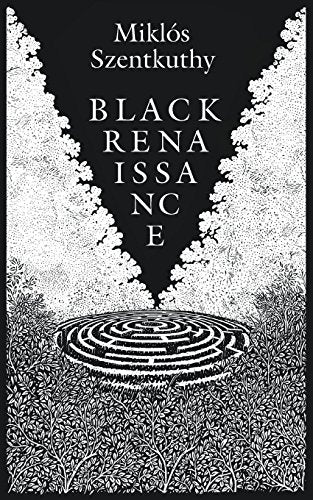Contra Mundum Press
Black Renaissance: St. Orpheus Breviary, Vol. II
Couldn't load pickup availability
Author: Szentkuthy, Miklos
ISBN: 9781940625263
Publisher: Contra Mundum Press
Published: 2018
Binding: Quality
Language: English
Condition: New
New from the publisher
Fiction 1282003
Publisher Description:
Black Renaissance, the second volume of the St. Orpheus Breviary, is the continuation of Miklos Szentkuthy's synthesis of 2,000 years of European culture. St. Orpheus is Szentkuthy's Virgil, an omniscient poet who guides us not through hell, but through all of recorded history, myth, religion, and literature, albeit reimagined as St. Orpheus metamorphosizes himself into kings, popes, saints, tyrants, and artists. At once pagan and Christian, Greek and Hebrew, Asian and European, St. Orpheus is a mosaic of history and mankind in one supra-person and veil, an endless series of masks and personae, humanity in its protean, futural shape, an always changing function of discourse, text, myth, & mentalite. Through St. Orpheus' method, disparate moments of history become synchronic, are juggled to reveal, paradoxically, their mutual difference and essential similarity. "Orpheus wandering in the infernal regions," says Szentkuthy, "is the perennial symbol of the mind lost amid the enigmas of reality. The aim of the work is, on the one hand, to represent the reality of history with the utmost possible precision, and on the other, to show, through the mutations of the European spirit, all the uncertainties of contemplative man, the transiency of emotions and the sterility of philosophical systems."
In Black Renaissance, the dramatic scenes and philosophical passages (never a fog of abstractions, more the world and tone of Nietzsche's Zarathustra) parade before the reader ostensibly as three characters, by way of three Orphean masks: Renaissance and baroque composer Claudio Monteverdi, architect and engineer Filippo Brunelleschi, and a tutor to the young Elizabeth Tudor. From Monteverdi's impassioned search for an opera subject in the works of Tacitus to his meditations on divinities, to Brunelleschi's diving into the works of Herodotus so as to illustrate Greek history, Szentkuthy veers through the Renaissance, soun

